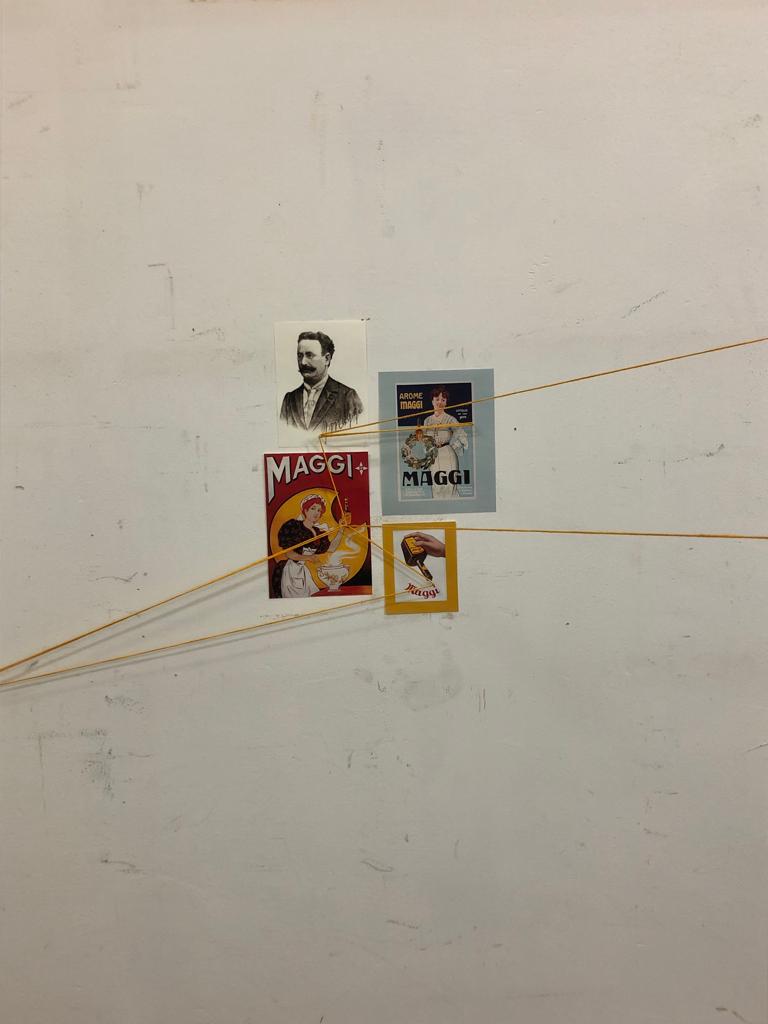Spices before the Cube
Authors: Ambarin Sultana | Yassine Rachidi | Mohammad Munib Rehman | Maria Vermathen | Konrad Byron

“I believe what we aimed for with this project was to not only shed light over West-African condiments left in the shadow of Maggi’s stock cubes, but rather to get a glance of the ways in which condiments exist in a set of complex social structures.“ - Y.R.
This project offers an immersive installation alongside a web-based archive of spices to produce a multi-sensorial record. The installation traces the ubiquity of the Maggi stock cube, owned and produced by Nestlé, throughout western Africa. Viewers have the opportunity to smell, touch, and taste indigenous spices and condiments whose use is threatened by Maggi monoculture while exploring their spiritual and cultural significance in the online archive. The project offers an interpretation on preserving cultural memory while simultaneously documenting the historical legacy of the product that has placed traditional spices under erasure.
“Through our project, we tried to give the abundant diversity of West African herbs and spices and their medicinal, socio-cultural and culinary uses some visibility. Seeing that there are many new women’s cooperatives who produce alternatives to the omnipresent Maggi cube using local ingredients, gave me the idea of a possible future direction of our Maggi counter-Archive.” - M.V.


From the authors: “To comprehend an archive is to explore facts, evidence, and documents as subjects rather than objects, as verbs rather than nouns. Archives produce as much as they record reality. It is because of this very fact that we followed the archival grain of Maggi's stock cubes towards the culinary heritage in the West African region where Nestlé is present. Widely used today in West African cuisine, Maggi cubes found their way into African kitchens and are now considered essential in the cooking of traditional West African meals. With numerous benefits to their name, these little stock cubes travel the world with ease, enhancing the flavor of any dish and saving precious time for working-class families. Maggi stock cubes in West-African cooking are ubiquitous. But what are they replacing, and at what cost?”
“Through investigating Maggi's stock cubes, we discovered Nestlé's legacy and impact on West-African cuisine. Maggi cubes are now considered essential ingredients and part of peoples lives. Is this cultural displacement or adaptation to new lifestyles?“ - K.B.
“Some of the evidence we curated refers to local gastronomical practices that preceded the modernization of food production in the region, and offers an ethnographic glimpse into processes of harvesting and preparation that are being displaced by industrial products. Our archiving strategy aims to contrast this with the corporate account of Nestlé’s entrenchment in the region, and curate a gallery of cultural disjunction in the process.” - M.R.
The Maggi Counter-Archive website homepage
